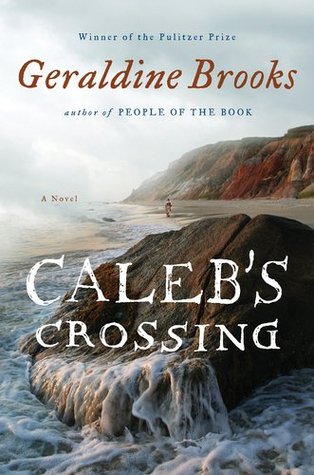I’ll admit. I had a couple of false starts with this book. I have long admired Geraldine Brooks’ writing; March and People of the Book are two of my favorite novels, but I think the subject matter for this one wasn’t as compelling. In the beginning, I was annoyed by Bethia, whom I initially felt wasn’t quite believable as a narrator. Bethia seemed to be the mouthpiece for Brooks’ agenda to expose cultural wrongs. As a 12-year-old, Bethia grasped animal rights, cultural subtleties, and religious conflict in a completely (and unbelievably) 21st century way. This seemed to ebb about a third of the way through the book though. Or maybe I just got used to it.
Per usual, the linguistic cadence of the time period was masterfully captured by Brooks. An example:
“As the ripe summer turned to autumn, the sunlight cooled to a slantwise gleam, bronzing the beach grass and setting the beetle-bung trees afire. Caleb learned his letters faster than I could credit. Before the singing of the cider, he could read and speak a serviceable kind of English” (50).
The two prominent themes in this novel were a woman’s place in society and racism. I do not know how many intellectually inclined Puritan women there were, but I think Brooks deftly demonstrates the conflict one would experience if she desired learning. At one point, Bethia takes a job at Harvard just so she can listen to lectures through the wall. The image of her kneading dough while her ear is pressed against the buttery hatch, drinking in knowledge from which she is excluded, was a poignant one.
The cultural divide that must have engulfed early Native American scholars was also explored - the sad murmurings of racism and echoes of insensitive cruelties are all too familiar in our own society. These Native Americans were both despised and seen as curiosities. It is hard to imagine two cultures more ill-suited for co-existence than the Puritan and Native American ones.
Brooks is a masterful storyteller and a meticulous wordsmith - she didn't win the Pulitzer Prize for nothing! Her writing is organic, accurate, and abundant with the vivid hues of life ,and I always feel richly rewarded when I finish one of her novels.



No comments
Post a Comment